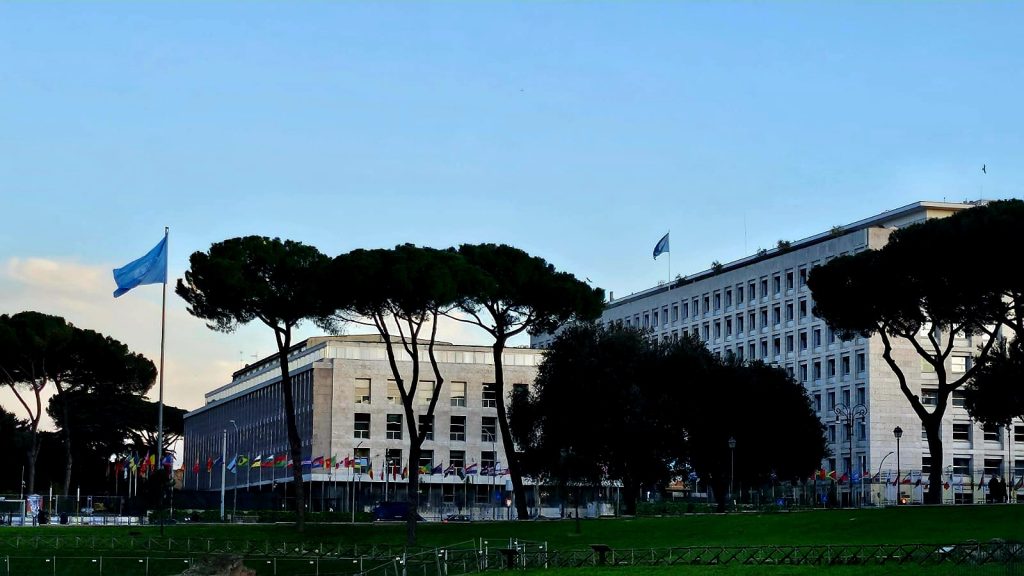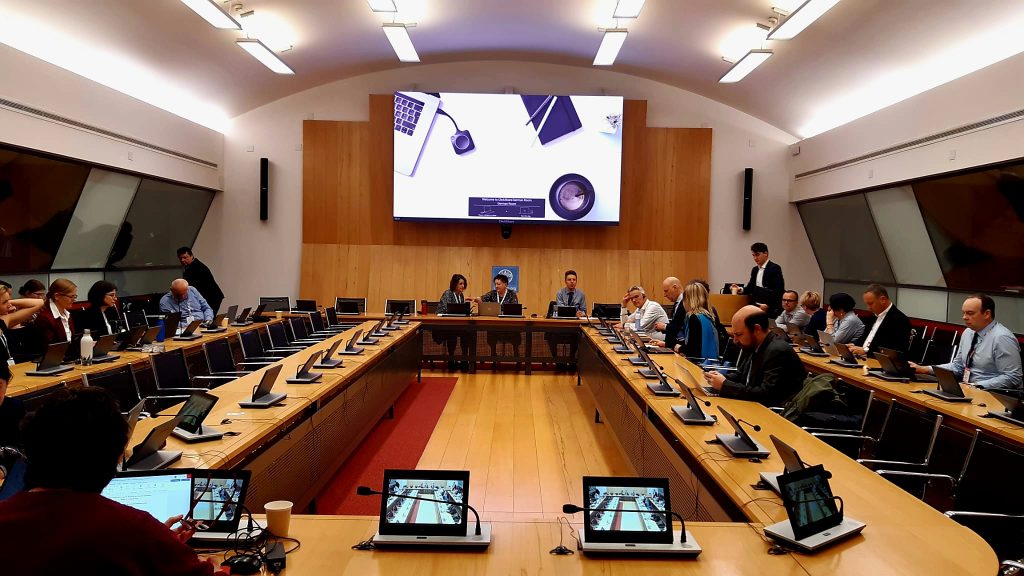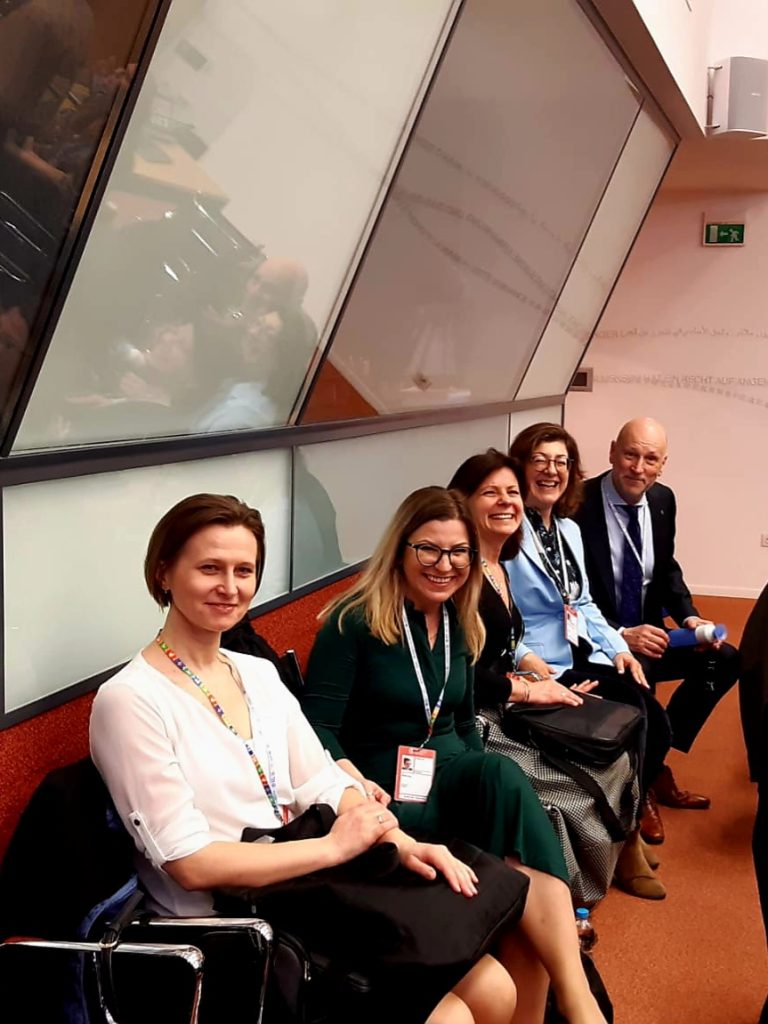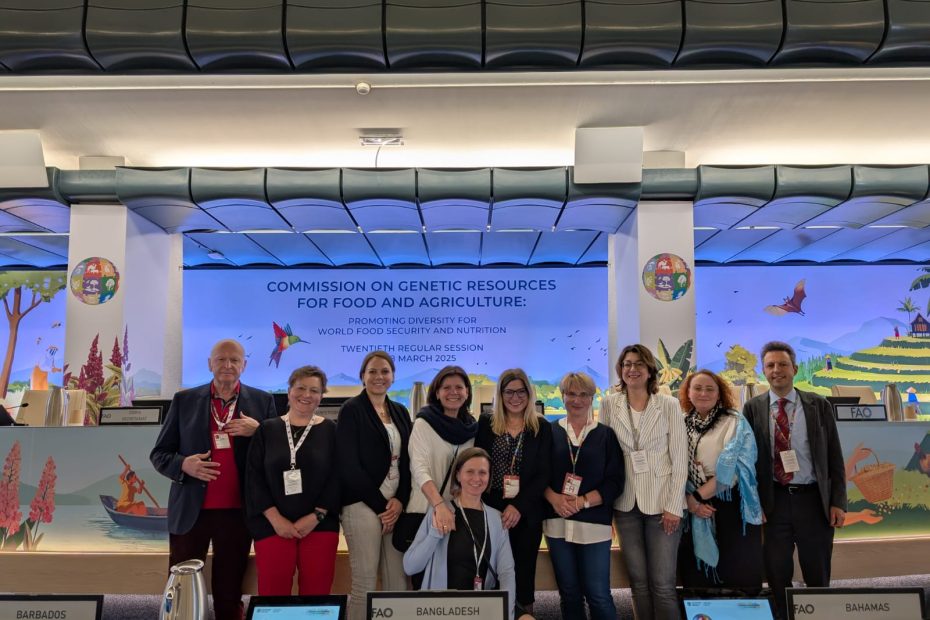The 20th Session of the FAO Commission on Genetic Resources for Food and Agriculture, which is tasked with conserving biodiversity and promoting its sustainable use for food security, was held in Rome on 24–28 March.
The Commission’s deliberations were preceded by regional meetings of National Coordinators, National Focal Points and experts, held on 23 March. Their aim was to establish common positions on the current situation and plans for the conservation and use of genetic resources of crops, farm animals, forests, waters, microorganisms and invertebrate animals of importance for food and agriculture. Poland, holding the EU Presidency, led the initial meeting of European countries and the coordination of EU countries’ positions. A delegation from Poland, consisting of experts from eight thematic areas, took part in the session. Present on behalf of the National Research Institute of Animal Production were Grażyna Polak, PhD Eng., Agnieszka Chełmińska, PhD Eng., and Ewa Sosin, PhD Eng.
On the first day, the positions of all the world’s regions were presented on horizontal issues: climate change, ABS (access to genetic resources and benefit sharing), DSI (digital sequence information) and biodiversity. As previously agreed in Brussels, during the Commission’s deliberations, the European Regional Group put forward a number of demands to intensify work on the conservation of genetic resources in all areas of biodiversity in terms of threats from overexploitation, climate change and pollution.
On 25 March, aquatic and farm animal genetic resources were discussed. On the following days, positions were presented on plant genetic resources, forest genetic resources, as well as microorganisms and invertebrate animals (e.g. bees). The possibility of addressing new urgent topics and strengthening international cooperation was also discussed.



On the penultimate day of the Commission’s meeting, the countries that will cooperate in the FAO Intergovernmental Technical Working Groups for Food and Agriculture were presented. The task of the groups is to prepare the work for the upcoming Commissions. In the case of the European region, representatives of the Russian Federation were very active, having volunteered to participate in as many as four Working Groups. At the plenary meeting concluding the work of the Commission, the European Union, the United Kingdom, Japan and Canada disassociated themselves from the election of the Russian Federation as alternates or members of the Intergovernmental Technical Working Groups.
